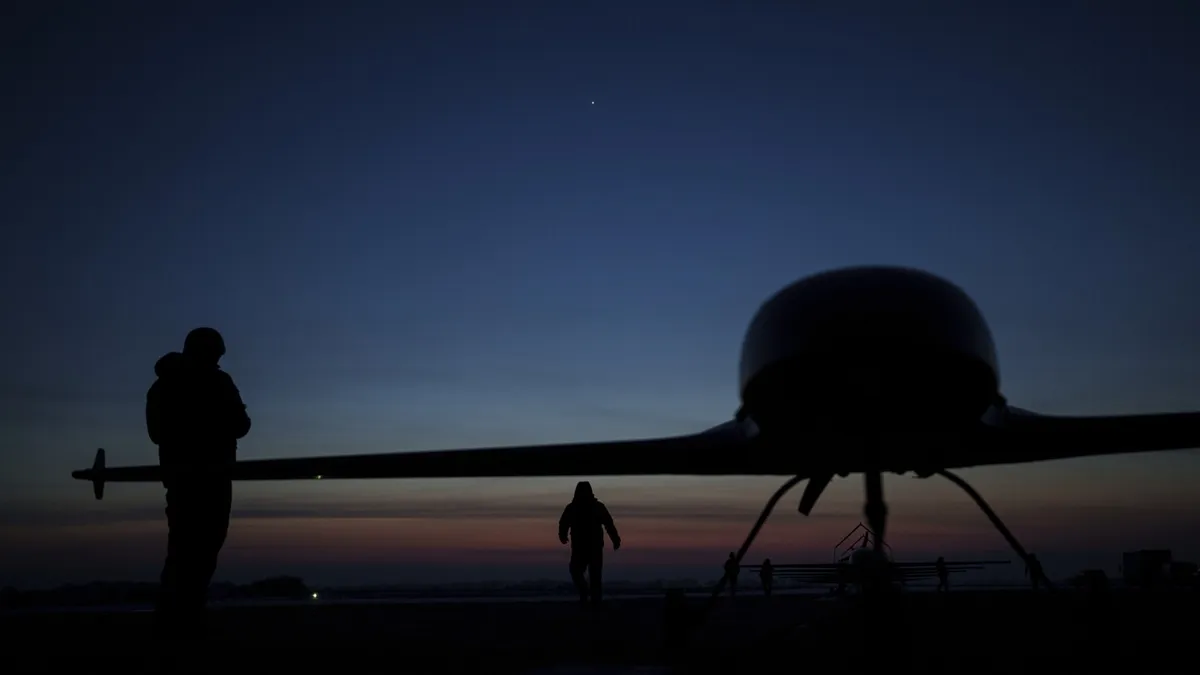
On Tuesday, Ukrainians faced the challenging consequences of the Trump administration’s recent decision to suspend military aid critical to their defense against Russia’s invasion. This pause follows a tumultuous Oval Office confrontation, which has exacerbated the already strained relationship between Kyiv and the White House. President Donald Trump has directed a halt to all assistance, aiming to pressure Ukrainian President Volodymyr Zelenskyy into engaging in peace discussions with Russia.
The decision to pause military aid has significant implications for Ukraine's ongoing fight against Russian aggression. It appears to halt the delivery of arms previously approved under the Biden administration. However, uncertainty remains regarding whether this suspension will impact the supply of ammunition for existing weapons systems already deployed in Ukraine. This aid is vital for Ukraine, which relies heavily on foreign support to repel the Russian invasion that began on February 24, 2022. Notably, U.S.-made Patriot air defense missile systems are a critical component of Ukraine’s defensive capabilities.
Moreover, U.S. intelligence support has been invaluable, enabling Ukraine to monitor Russian troop movements and effectively select targets. Ukrainian officials express concern that a withdrawal of U.S. assistance could leave a significant void that European allies are unable to fill. A Ukrainian soldier, who requested anonymity, shared feelings of betrayal but noted that he had anticipated such actions from Trump. He emphasized the pragmatic nature of warfare, stating, “If we have weapons, enough ammunition, infantry, armored vehicles, and aviation — great. If not, then we’re done.”
On the frontlines, soldiers are acutely aware of the implications of the U.S. decision. One soldier recalled a previous seven-month delay in U.S. aid that allowed Russia to capture the strategically significant city of Avdiivka. The uncertainty surrounding Trump’s intentions has left many, including Ukrainian lawmaker Oleksandr Merezhko, questioning the future of U.S.-Ukraine relations. Merezhko stated, “It’s unclear what Trump wants and what the purpose of his actions is,” expressing concern that Trump appears to be siding with Russia.
Olena Fedorova, a resident of the southern port city of Odesa, expressed hope that the decision to pause aid would be temporary, emphasizing the dire need for support. The relationship between the U.S. and Ukraine has deteriorated in recent weeks, particularly as Trump’s team has initiated talks with Russia regarding the war. Trump's dismissive attitude towards Zelenskyy has raised alarm among Ukrainian officials.
In response to the U.S. decision, Kremlin spokesman Dmitry Peskov suggested that the suspension of supplies could accelerate a peace agreement. He noted, “The U.S. has been the chief supplier in this war so far,” indicating that a halt in military assistance could benefit Russia’s position in ongoing negotiations. Russian officials predict that Ukraine may deplete its current ammunition reserves within months, which could allow Russia to further its territorial ambitions.
Meanwhile, Ukraine’s European allies have reaffirmed their commitment to supporting Kyiv. The British government, in particular, has been vocal in opposing any moves by Trump that could lead to a resolution favoring Moscow. Malcolm Chalmers from the Royal United Services Institute cautioned that Washington’s decision might embolden Russia to demand more concessions from Ukraine, including demilitarization and neutrality.
Amidst these developments, advocacy groups such as Razom for Ukraine are urging the White House to reverse the decision to halt military aid. They argue that halting assistance jeopardizes Ukrainian sovereignty and gives Russia the green light to continue its aggressive actions. “By abruptly halting military assistance to Ukraine, President Trump is hanging Ukrainians out to dry and giving Russia the green light to continue marching west,” the group stated, calling for renewed military support for Ukraine.
The situation remains fluid, and the stakes are high as both Ukraine and its allies navigate the complexities of international relations and military strategy in the face of ongoing Russian aggression.